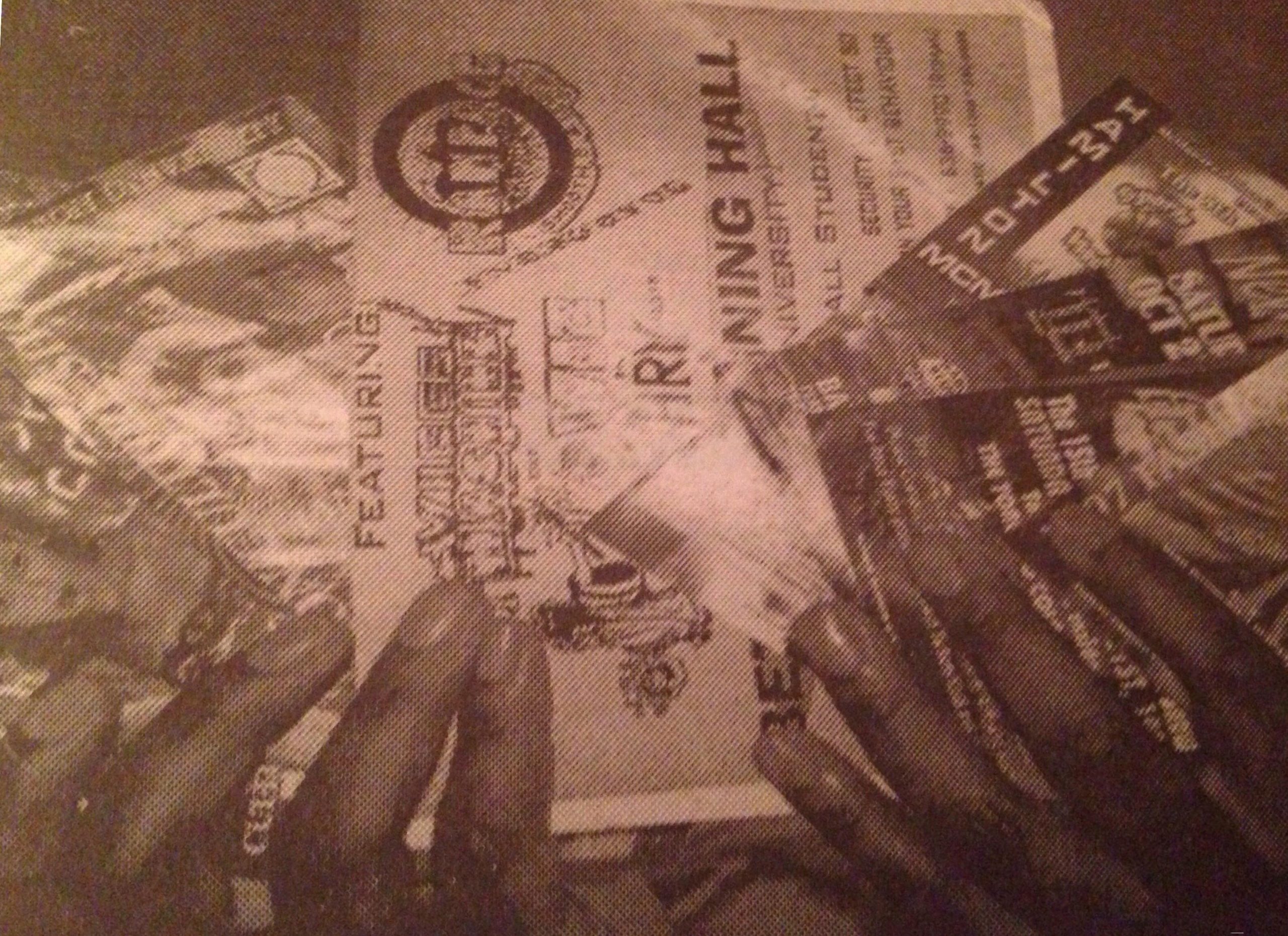By Vanessa Thomas
Holding her list of 50 fashion-show models, Lee-Anne Lyon remembers the feeling of dread she had when she heard the show was going to be cancelled. Lyon says despite finding out during the last week of exams the investors pulled out of the Ryerson African-Caribbean Association’s (RACA) annual fashion/culture show and after-party, she couldn’t bring herself to announce the news to her models.
“Since October my models have practiced three to four hours every Sunday. How can I now tell (the models) that they’ve wasted all their time?” says Lyon, RACA’s social-events coordinator and a second-year environmental health student.
But, Gregory Plummer, RACA’s president isn’t ready to let the show die. With months of preparation and hundreds of dollars of advertising already put into the show, Plummer announced this week that RACA, debt-ridden and in need of $12,000 is still determined to stage their 15th annual show, Atele Fefodzii, scheduled for Feb. 21 .
For now, it seems Lyon and the rest of the show volunteers can breathe easy. But RACA is not out of the woods yet.
RACA is one of the several Caribbean university and college student groups trying to keep up in the competitive university-party market with annual large-scale events driven by investors, thousand-dollar promotions and top-name DJ’s.
After inheriting a crippling $3,000 debt from a failed culture show three years ago, RACA is attempting to rebuild its tarnished reputation with its members and other university party-goers who have come to expect a high quality, lavish production.
However, Ryerson administration and many RACA old-timers feel the culture show is getting too expensive. The way they see it, more money means more problems.
Plummer says the show will go on, no matter what.
“As it stands now, we’ll just have to postpone the party ‘til March, maybe make it smaller, but the show will definitely happen,” says Plummer, a second-year business management student.
With past years of mismanagement and internal strife, RACA executives say hopes of rebuilding the club’s beleaguered image within Ryerson hinges on having a successful culture show each year. These hopes could be dashed if the show is cancelled – something that has not happened since the show began in 1984 .
Lyon expects good attendance at this year’s show, to be held at the Toronto Colony Hotel. She points out that last year, despite the debt and a shoe-string budget, RACA was still able to attract 400 people to the show at the Ryerson Theatre and 800 people to the after-party at the Colony Hotel.
RACA, like many student organizations representing Caribbean students, hired Player’s Cartel Entertainment Group (part of the University all-star tour, a party cartel with a monopoly on university party circuit) to promote their show.
Christopher Smith, co-owner of Player’s Cartel, made $20,000 on last year’s University All Star Tour ‘97 of Ryerson, York, Western, McMaster, Windsor and the University of Toronto. Smith, a third-year business student, says putting on these parties are getting so expensive Player’s Cartel can only invest in schools with the biggest party reputations to make a profit.
“The big Djs are charging outrageous figures. Security sometimes doubles their rates on big occasions and the Colony Hotel has raised the price of renting their venue,” he says.
Smith says these large-scale events are hugely profitable for some Caribbean organizations at York University and the University of Windsor. Both student groups earned more than $10,000 on each event and both attracted almost 2,000 people.
“These universities (York and Windsor) are definitely on the map because of their parties,” says Smith. “U of T and Ryerson haven’t yet established themselves in this market and maybe they just can’t compete.”
However, RACA members don’t agree and are disgruntled with Smith pointing out he promised to finance their culture show and after-party back in September. Plummer, RACA’s president, says Smith is using his monopoly to take away control from school organizers who have little alternative but to promote their party through outside promoters like the University All-Star Tour.
“I don’t like the guy,” Plummer says of Smith. Plummer feels Smith is a shrewd businessman who is deserting RACA after making an agreement with the student group. “(Smith) just bit off more than he can swallow and now he’s choking and looking for sympathy.”
If you ask Smith how he feels about this monopoly, he answers with a laugh. “Ask Bill Gates that question.”
Gary Thompson, RACA president 12 years ago, feels these culture shows are becoming less about pride in african and caribbean culture and more about those who can have the biggest party. “I think they’re totally off track. RACA has developed very grand and impractical ideas,” says Thompson. “RACA should go back to the basics. We have a rich Caribbean and African culture within the people, not in the event.”
In Thompson’s days, RACA’s show was a small event attracting 200 to 300 people, aimed at fostering pride amongst the small African and West-Indian community at Ryerson. In those days we never used promoters,” says Thompson. “The Women would cook and sell baked goods, we would borrow a back drop and risers from the theatre and Physical Plant would help make the stage out of wood.”
“There was always dancing, singing, poetry, skits, music and about 30 per cent of the show was fashion made by the fashion student. It always ended at 1:00 a.m. because we had our events on campus,” says Thompson.
Past RACA executives are not the only ones yearning for the good ol’ days, “Over the years the events just seemed to get bigger and bigger,” sats Leatrice Spevak, RyeSAC’s campus groups coordinator. “Instead of the promoters owning the event it’s time for RACA to take control and scale it back. I Really wish that instead of these grand-scale shows, RACA would go back to the grass roots.”
RACA executives say there is no way to go back to the 80s. “Two hundred dollars is just not enough to have an event,” says Lyon, the social events coordinator. however , she points out that’s all RyeSAC’s budget allows them for social events. “The cost of organizing and promoting a fashion show really does add up quickly. Anything else that we do differently would only knock off $2,000 at the most.”
Lyon says they realize hiring promoters to invest in their events is risky, but what can they do when they’re expected to put on big parties and big shows. “The (fashion/Culture) show has to be at certain level or else the community will not want to attend.”
Roger Duffus, RACA assistant social director and fashion show model, regularly attends university parties. With several parties vying for attention he admits to only going to the largest events. “My parents’ generation were satisfied with a small-scale events with a hick DJ, one turntable, spinning an eight-track or putting a tape in the deck, but we have different standards. For us everything has to be big, a big-name DJ a big showing, a big production.”
Lyon says RACA is not trying to compete with other universities. “I would prefer to have events in conjunction with other universities. “I would prefer to have events in conjunction with other universities. We tried that last year with U of T but everyone wants to do their own show.”
Lyon says she doesn’t see things changing any time soon and she doesn’t have time to worry about it either. She has a show to produce. And if 300 RACA members have their way it has to be good.












Leave a Reply